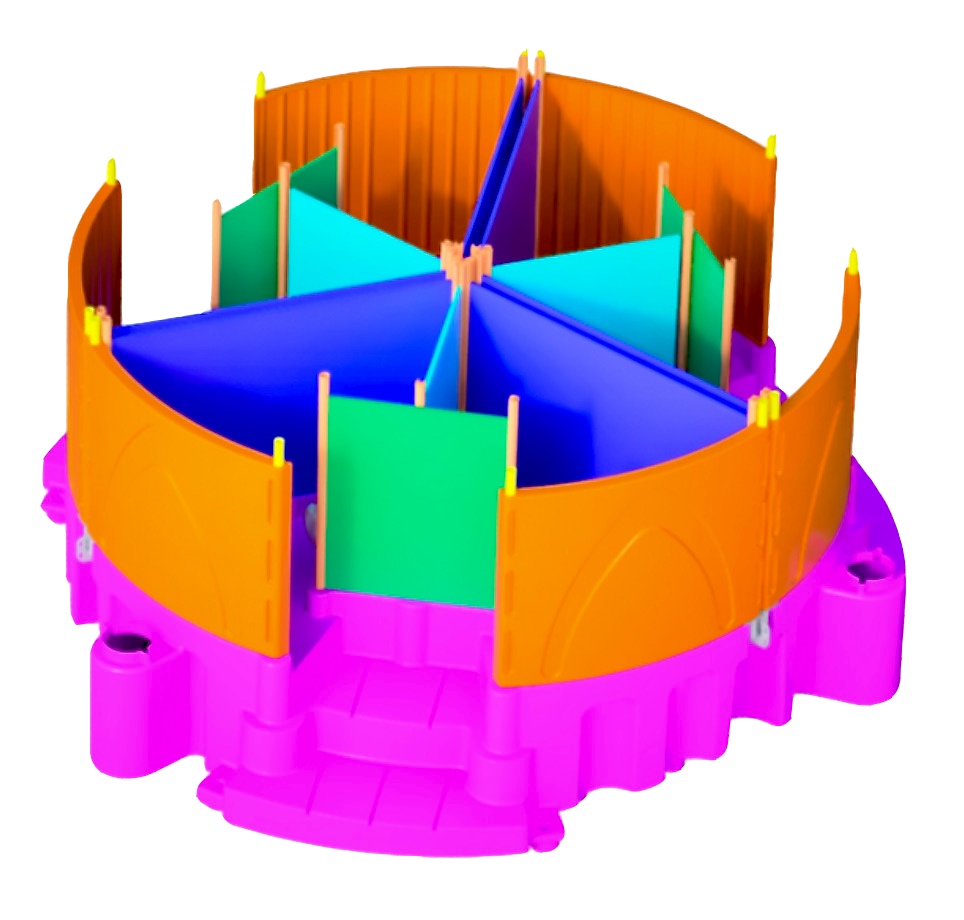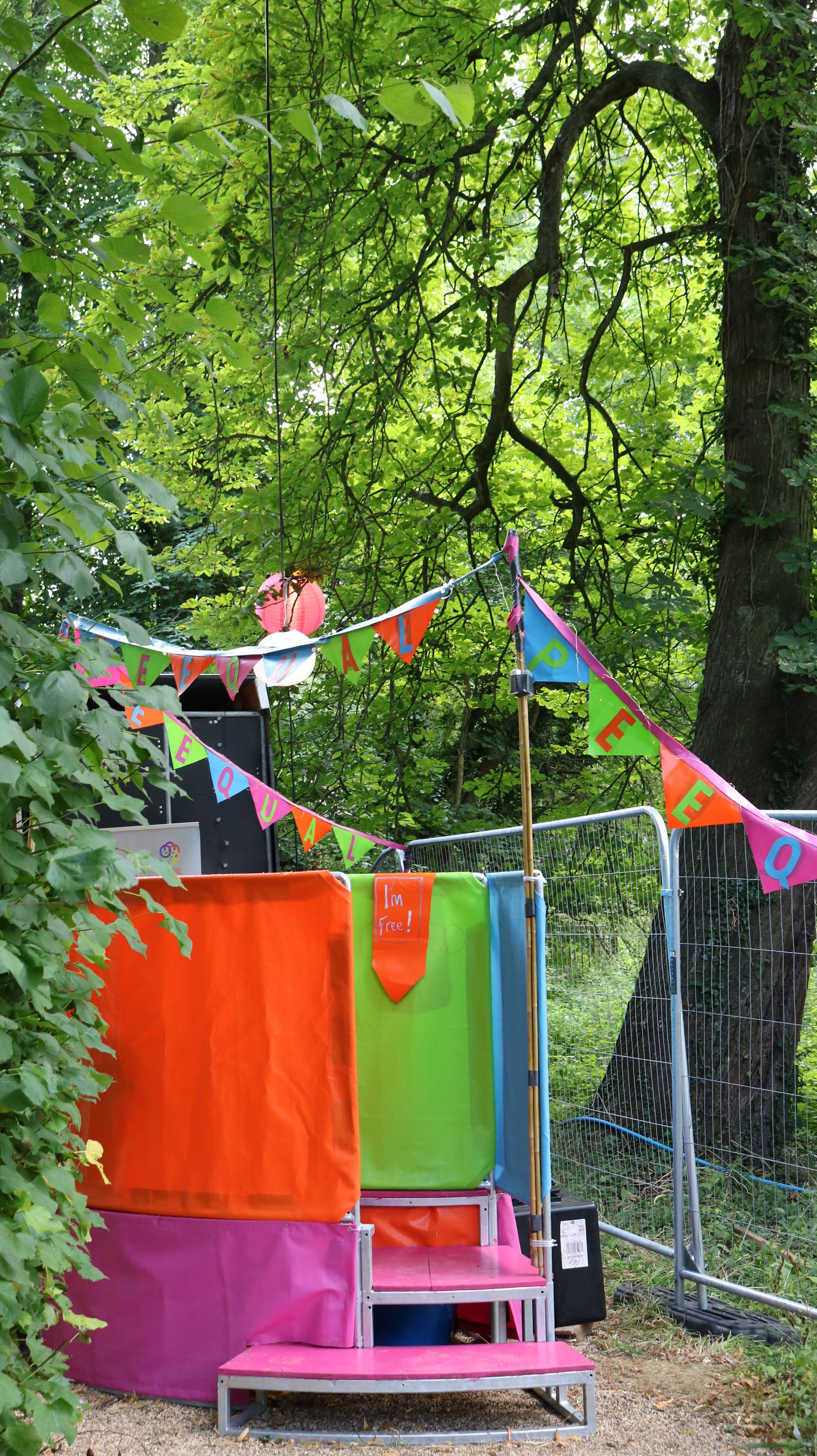By Flossie Palmer, Features Editor
Peequal is the UK's first women's urinal aiming to establish pee-equality in public hygiene facilities. Epigram spoke to the Bristol grads who started it all.
Bristol graduates, Amber Probyn and Hazel McShane founded Peequal – the UK’s first touch-free women’s urinal – in a bid to end gender disparity in public hygiene facilities and unnecessarily long queueing for women’s toilets. Peequal’s mission is to ‘pioneer pee-equality that is safe, sanitary and sustainable’, something it is certainly achieving with its touch-free design, which has ten fewer touch points than public toilets, and its open-air feature, providing not only a more hygienic alternative but a COVID-safe solution. However, Peequal goes much further than its mission statement in establishing pee-equality.
In their research, Peequal’s co-founders discovered that queues for women’s toilets are much longer than men’s because of inevitable biological and lifestyle needs; women spend more time in public toilets while menstruating, wearing tighter clothing, supervising children and for the simple reason that they biologically pee more than men. The urinal acts as a temporary solution at larger events, such as festivals and marathons, creating a stream of faster queueing to reduce waiting times for cubicle toilets, so that those who need to access them can.
However, the urinal also aims to solve another unprecedented issue. In Peequal’s research, it was discovered that the ratio of women’s toilet cubicles to men’s urinals is 1:10, meaning that ten urinals can fit into the same space as a singular toilet cubicle. So, Peequal’s mission is as much about making space equity equal as it is about improving the quality and access to public hygiene facilities for all genders.

Both Amber and Hazel studied Innovation alongside their Anthropology and Physics degrees at the University. They felt that their Innovation background, which taught them the practice of applying creative solutions to real-world problems, provided them with a knowledgeable background for entering the business and manufacturing industries after graduating. Peequal originated as a practical dissertation as part of Amber and Hazel’s study of Innovation. However, as Amber explained, the project began with the desire to solve the real-world problem of pee-inequality and disproportionate access to public hygiene facilities – the women’s urinal as a solution came later.
The urinal functions through an implemented semi-squat design, requiring the user to squat over the urinal to use it. This design was influenced by Peequal’s research, which found that 80 per cent of women squatted over a toilet seat in public facilities anyway. ‘Instead of going against the grain, we’re taking that and modifying it to make it more hygienic and anti-splash back,’ Amber explained, ‘We’re also making it a lot more comfortable by accommodating different squat heights and different height adjustability.’

The pedestal of the urinal accommodates three key squat heights – the high, low and wide squat; as Amber pointed out, ‘women of all kinds of squatting ability are able to use it!’. Angled flooring also prevents slipping and stabilises the user during squatting, while as well handholds and elbow rests increase security.
Although the urinal has been designed to prioritise safety and usability, Peequal’s co-founders also expressed their desire to create an empowered space for women in public. Even the stabilising design of the urinal is meant to uplift women, as Amber explained that ‘When you squat, we want the user to be in a safe and strong position. When you squat it's quite a vulnerable feeling, but when you’re up on the platform, you’re above or at someone’s standing. It removes that feeling of vulnerability.’
Beyond the design, the Peequal team have also recognised the importance of empowered women’s spaces in public, and the sense of community they can breed; ‘In our research, women’s toilets are the safe space where you empower each other, where you can pep talk each other, and we love that!’ Amber exclaimed, ‘We don’t want to crush that at all, we want to foster that in this safe space.’ The team has also considered implementing mirrors and music to the already multi-coloured design to cultivate an experiential space and enjoyable experience for all users.
"In our research, women’s toilets are the safe space where you empower each other, where you can pep talk each other, and we love that!"
The urinal is also flat-pack by design to address the issue of inequal space equity of public hygiene facilities, meaning they are six times more efficient to pack and transport than a portable toilet. As Hazel elaborated, this also benefits the environment; ‘We are a temporary solution to one of the biggest contributors of CO2 – transport. If we’re at a travelling circus festival, we can cut down [the emissions] immediately.’
Conveniently, the Peequal urinal also has further environmental benefits, such as through Peequal’s partnership with Peepower, which transforms the urine collected from the urinal into electricity. Surprisingly, as the Peequal team discovered from the CEO of Peepower, women’s urine is the perfect candidate for the partnership, as it is biologically able to generate more electrical power than male urine. On top of recycling the urine collected, the design of the urinal itself is also 100% recyclable, and can be ground down after eight years of use to be made into new urinals.
Without a doubt, the Peequal’s team has created an undeniably revolutionary innovation and sustainable solution with its women's urinal, and yet the male response has been an unsurprising challenge for the two entrepreneurs. ‘We have to approach it with humour, especially to guys’, Amber explained, ‘It’s not the idea. I think they just see us as inexperienced. We’ve had a few comments like "we need more heavyweight people on the team", such as a man to strategize with us.’

When asked about how they have tackled sexism in the business and manufacturing industries, Amber identified that ‘The young female is a tricky position – there has been greater investment in women in business and there have been greater opportunities so we’ve definitely come at a time where there has been as much support as possible, which is brilliant.’ However, ‘we’ve been in many workshops, seminars and meetings where’s its been all men – white men – who think that they know best.’
Amber went on to admit the difficulty of not assimilating to a level of acceptance of male superiority within the industry, noting that ‘You do sort of believe it to a point. You have to have so much confidence and such thick skin to push through that. I think we’re learning that and building up our resilience, but it’s still so frustrating when a guy, or someone who has no idea about what you’re doing, tells you what to do because they think that they know better. Business and manufacturing are both very male-heavy. Pioneering in both of these areas is difficult, but it has to be done.’
"Business and manufacturing are both very male-heavy. Pioneering in both of these areas is difficult, but it has to be done."
The Peequal team have continued to break down patriarchal stigma within these industries by pitching their women's urinal at the Santander x Entrepreneurship Awards 2021 at Wembley Stadium on 6 October, in which they progressed with their pitch into the semi-finals. They have also implemented the urinal at three festivals during Summer 2021, including Shambhala and Valley Fest, and a running event with over 5,000 attendees, all at which they made a hugely positive impact for female users, with one user claiming; ‘I loved it! I don’t know why we haven’t always been doing that, it was so easy!’
Looking forward into the future of Peequal, Hazel and Amber are hoping to find investment for the urinal in January, with June 2022 marked as the prospective date for retail and rental opportunities. Hazel also expressed the team’s desire to expand Peequal’s horizons beyond festivals and marathons to disaster sites and refugee camps, where access to hygiene facilities is most crucial and Peequal presents the most practical solution.
Wherever Peequal is headed next, the aim of establishing pee-equality and providing basic access to public hygiene facilities for all, regardless of gender, is at the very heart of their mission. Check out what others think here.
Featured Image: Epigram | Peequal






